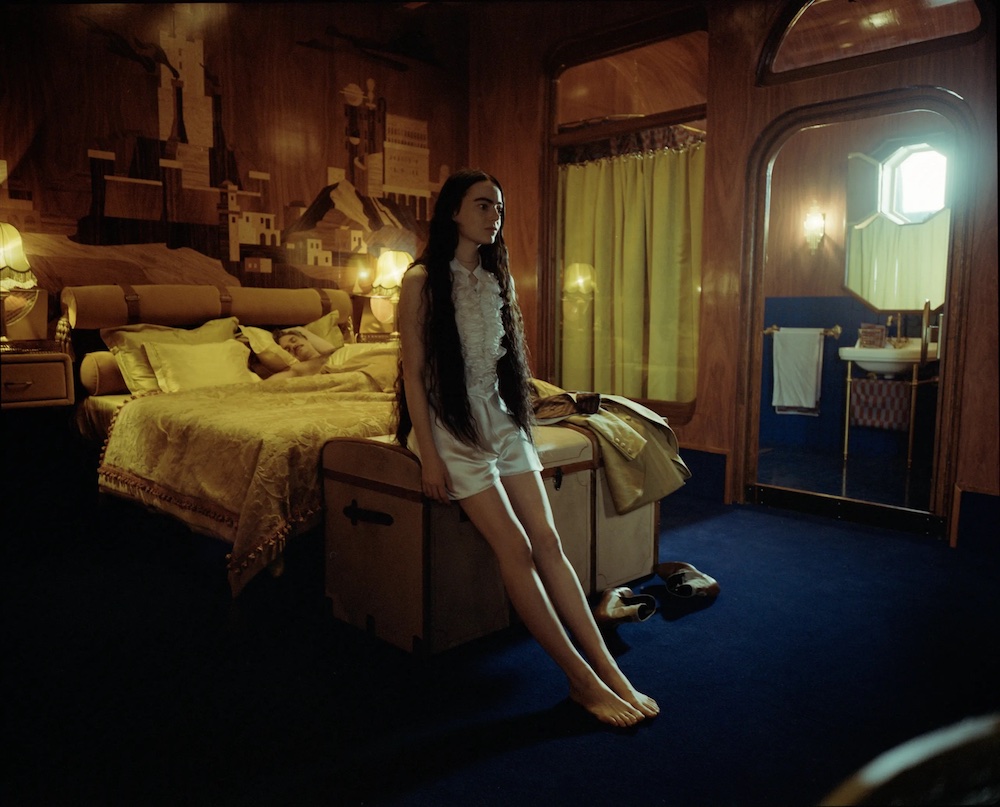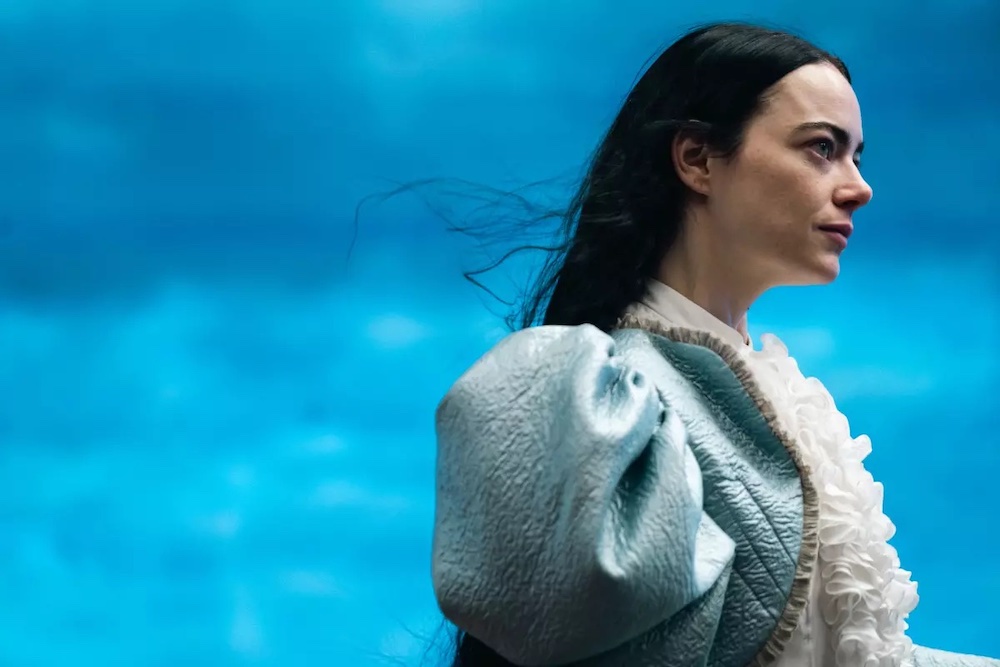“And when we know the world, the world is ours.”
—Bella Baxter
What is it exactly that makes a being human?” Is it the presence of a human body or a human mind? Or is it some incommensurable, uncanny union between the two?
For the philosopher Descartes, the answer was unequivocal: I think, therefore, I am. The human being is a thinking being. Doing is another issue.
Likewise, the earliest test for the presence of machine intelligence—proposed by Alan Turing—indexed the ability to engage in identifiably human conversation: to represent thinking verbally.
Such views are relentlessly contested by Yorgos Lanthimos in his newly released film Poor Things. His premise is simple: the film’s central character, Bella Baxter (extraordinarily embodied by a transcendent Emma Stone) is a young woman with a fully formed and beautiful body who, via a complicated series of events, comes to her experience of being-in-the-world with the mind of a new-born infant, a pure tabula rasa. Thus, she comprises a perfect experimental subject in human development for her “creator,” the monstrously scarred Dr. Godwin Baxter (a brilliant Willem Dafoe), known affectionately by Bella as “God.”

Emma Stone in Poor Things. Photo: Yorgos Lanthimos. Courtesy of Searchlight Pictures.
As the film’s plot unfolds, the viewer sees mind and body moving gradually into registration. In short, the being called Bella Baxter is slowly but surely becoming an integrated human female individual. At times, this transformation seems like a surrealistic My Fair Lady (1964); but the real touchstone is Mary Shelley’s 1818 novel Frankenstein. The scenes in Dr. Baxter’s surgery/anatomical laboratory make this connection explicit. But what really counts are the differences between novel and film. For Shelley, whose “monster” carried a man’s brain in a reassembled body, the priority was education: the perfection of rational thought in an Enlightenment mode. Bella, on the other hand, is struggling to master both body and mind, and set on indulging a lowest common denominator of primal, lustful enjoyments, which she often refers to as “furious jumping” (of which there is a lot in the film, some of it very graphic). When Bella’s moment of reading finally comes, the author chosen is Emerson, the American transcendentalist whose iconic text is his essay “Self Reliance.” Its relationship to Bella’s predicament should be self-evident.
Not surprisingly, Bella’s life is transformed when she leaves the cloistered world of “God’s” experiment and passes into the open-ended world of the self-directed adventure, forsaking her boyish betrothed, Godwin’s scientific assistant Max McCandless (played by Ramy Youssef) and taking up with a highly dubious chancer and gambler, Duncan Wedderburn (Mark Ruffalo). And what an adventure it is, as Lanthimos ushers us, along with Bella, into an extraordinary quasi-steam punk world dripping with art nouveau design pulsating with saturated colors and frenetic activity, populated by a remarkable cast of characters, as well as some of the most bizarre little chimeras (I especially enjoyed the duck-dog) ever to function as household pets.
All, however, does not go well, although Bella’s education continues apace, and she eventually finds herself, forsaken and broke, at work in a Parisian whorehouse. At last, taking control of her own “means of production,” and under the tutelage of a canny and socialistic African prostitute (a delightful Suzy Bemba), Bella finally attains enough polish (integrated human-beingness) to return “home” and face her final challenge: the assertion that another person entirely possesses ownership of her, and that this ownership is vested in his control of her physical body. Countering this assertion (any detail here would constitute a spoiler) provides a final summation of the philosophical and existential difficulties of “being Bella Baxter” and sets the stage for a bizarre Yorgos Lanthimos-style happy ending.
This film conflates sex/uality and sexualization in a way that some viewers might find quite disturbing. But, in my opinion, it’s an extraordinary piece of work and a profound meditation on just what being human entails.

